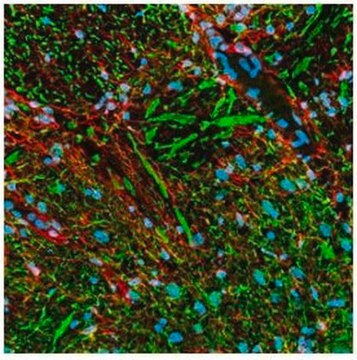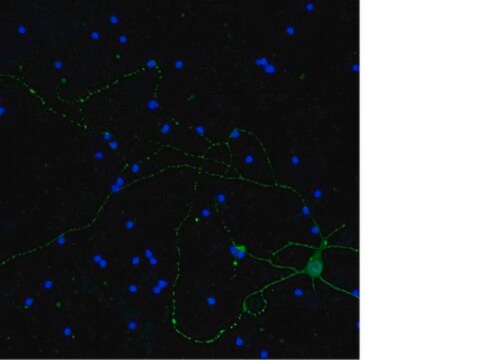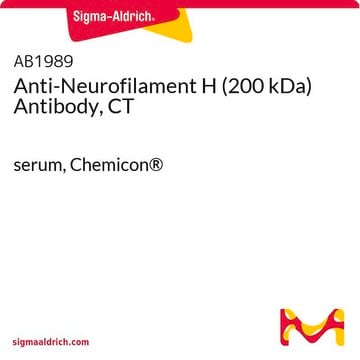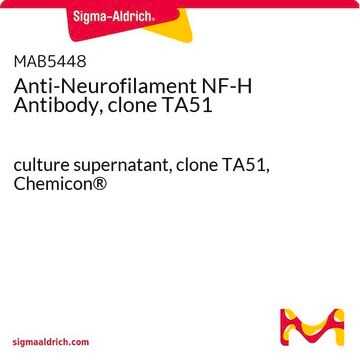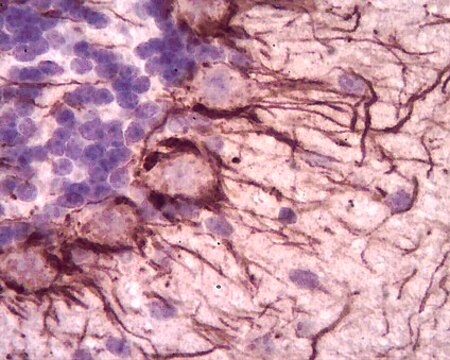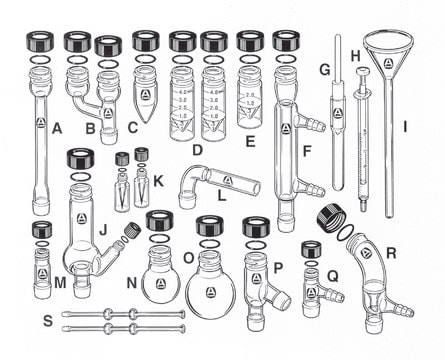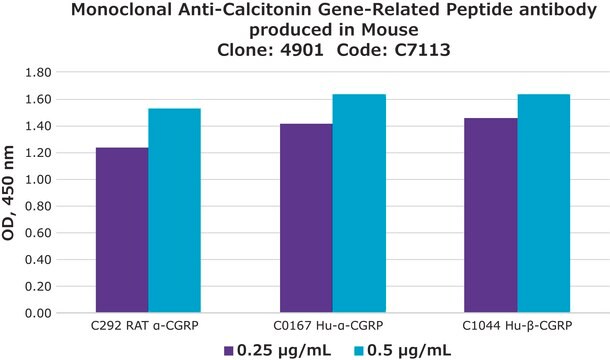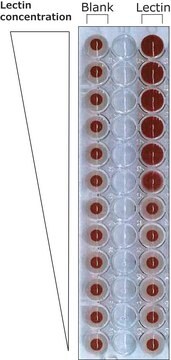AB5539
Anti-Neurofilament H (200 kDa) Antibody
CHEMICON®, chicken polyclonal
Synonym(s):
NF-H
About This Item
Recommended Products
Product Name
Anti-Neurofilament H Antibody, Chemicon®, from chicken
biological source
chicken
Quality Level
antibody form
purified immunoglobulin
antibody product type
primary antibodies
clone
polyclonal
species reactivity
rat, pig, bovine, feline, human, mouse
manufacturer/tradename
Chemicon®
technique(s)
immunocytochemistry: suitable
immunohistochemistry (formalin-fixed, paraffin-embedded sections): suitable
western blot: suitable
NCBI accession no.
UniProt accession no.
shipped in
dry ice
target post-translational modification
unmodified
Gene Information
bovine ... Nefh(528842)
cat ... Nefh(101087272)
human ... NEFH(4744)
mouse ... Nefh(380684)
pig ... Nefh(100156492)
rat ... Nefh(24587)
Specificity
Immunogen
Application
Immunohistochemistry: 1:1,000-1:10,000 on frozen or paraffin embedded tissue sections. Suggested fixative is 4% paraformaldehyde.
Immunocytochemistry: 1:1,000-1:10,000 on cells in tissue culture fixed for one minute in 3.7% formalin and one minute in -20°C methanol.
Optimal working dilutions must be determined by the end user.
Target description
Physical form
Analysis Note
Positive control: brain.
Negative control: kidney, liver.
Other Notes
Legal Information
Not finding the right product?
Try our Product Selector Tool.
Storage Class Code
12 - Non Combustible Liquids
WGK
WGK 2
Flash Point(F)
Not applicable
Flash Point(C)
Not applicable
Certificates of Analysis (COA)
Search for Certificates of Analysis (COA) by entering the products Lot/Batch Number. Lot and Batch Numbers can be found on a product’s label following the words ‘Lot’ or ‘Batch’.
Already Own This Product?
Find documentation for the products that you have recently purchased in the Document Library.
Customers Also Viewed
Our team of scientists has experience in all areas of research including Life Science, Material Science, Chemical Synthesis, Chromatography, Analytical and many others.
Contact Technical Service


